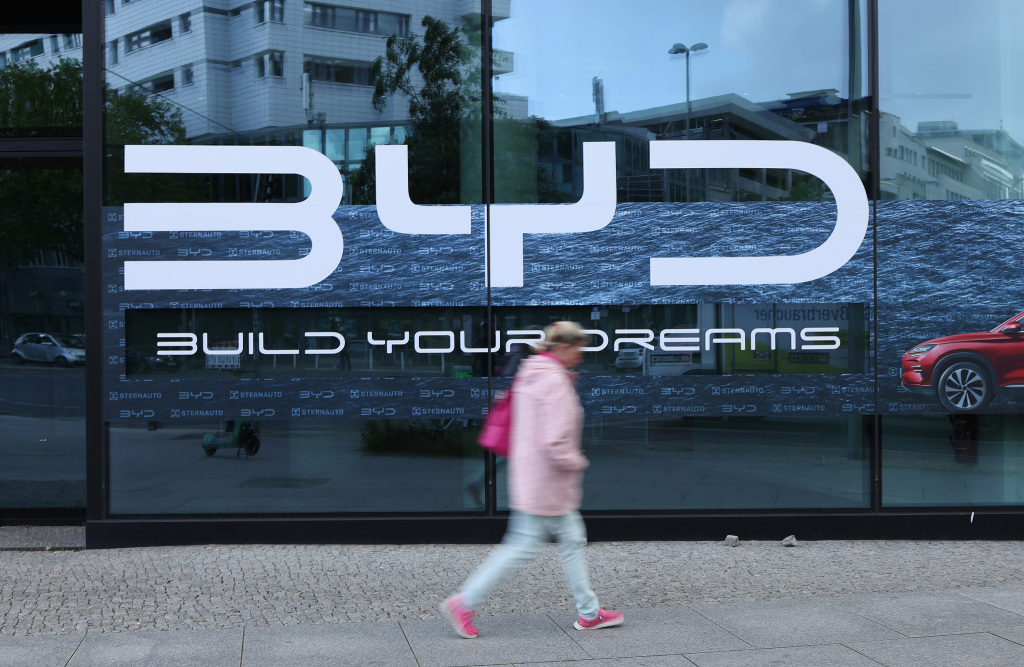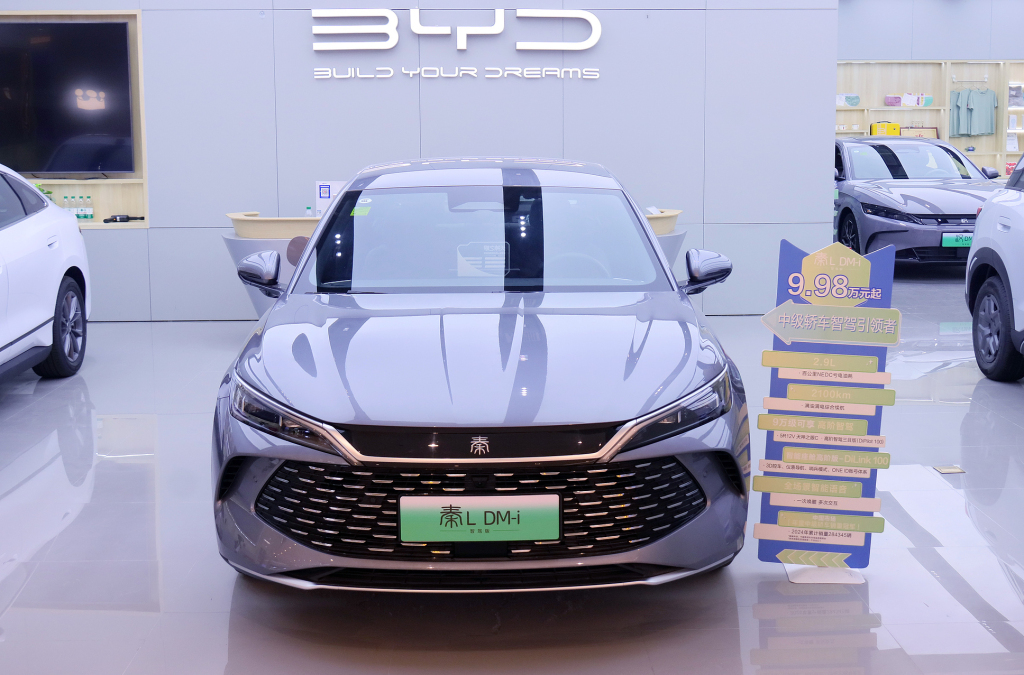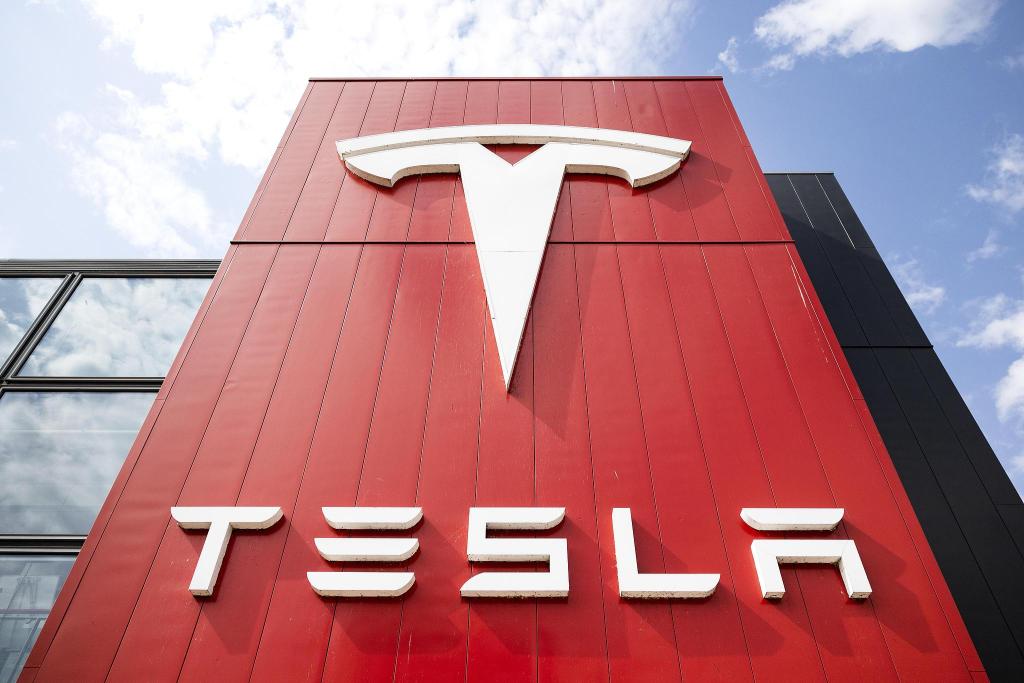
Despite facing higher tariffs than Tesla, Chinese electric car maker BYD surpassed Tesla in sales of pure battery electric vehicles in Europe for the first time last month, a report by market researcher JATO Dynamics called a "watershed moment" for the European auto market.

A woman passes by a dealership of Chinese electric car manufacturer BYD in Berlin, Germany, May 23, 2025, local time.
New car registration data from the automotive intelligence company showed BYD's sales in Europe increased 359% year-on-year in April as it continues its global expansion.
Tesla's sales fell for several months in a row, with total sales down 49%, JATO said, following protests in Europe against the company and its Chief Executive Elon Musk. JATO's data comes from 28 European countries.
BYD has been successful in the European Union market despite punitive tariffs imposed by the bloc last October on Chinese-made battery electric vehicles.
The punitive tariffs appear to affect BYD more than Tesla, which is subject to a 7.8% tariff on its China-made cars, compared with 17% for BYD. Other Chinese electric car makers face tariffs of around 35%. In addition, the European Union has a standard 10% tariff on car imports.
Felipe Munoz, global automotive analyst at JATO, said the sales gap between the two electric car makers in April was relatively small, but the impact of BYD beating Tesla "is huge." JATO added that BYD also beat established European car brands in Europe, for example, outselling Fiat and Seat in France.
“This is a watershed moment for the European auto market, especially considering that Tesla has led the European pure electric vehicle market for many years, while BYD will not officially start operations outside Norway and the Netherlands until the end of 2022,” Munoz said. BYD has already started production at its new plant in Hungary before it starts production.
"Europe is becoming a core battleground between BYD and Tesla," said Liz Lee, associate director at technology market research firm Counterpoint Research. She added that Europe's electric vehicle market is expected to grow faster this year than China, where electric vehicle penetration is already high. Lee said tariffs provide greater motivation for Chinese electric vehicle manufacturers such as BYD to localize production in Europe. Tesla is also reportedly making plans to expand its German manufacturing base.

On May 21, 2025, local time, in Paris, France, BYD demonstrated the electric car "Dolphin".
The JATO report said that while the tariffs initially impacted sales of Chinese automakers, the companies mitigated the impact by expanding and diversifying their European product lines with plug-in hybrid vehicles, which have not been targeted by EU tariffs.
At the same time, the demand for electric vehicles in the European market continues to grow. The report also showed that the registration volume of all electric vehicles produced by Chinese automakers in April increased by 59% year-on-year to nearly 15,300.
Last year, before the EU made its tariff decision, Rhodium Group predicted that tariffs would need to be as high as 55% before the European market would become unattractive for Chinese electric vehicle exporters.


